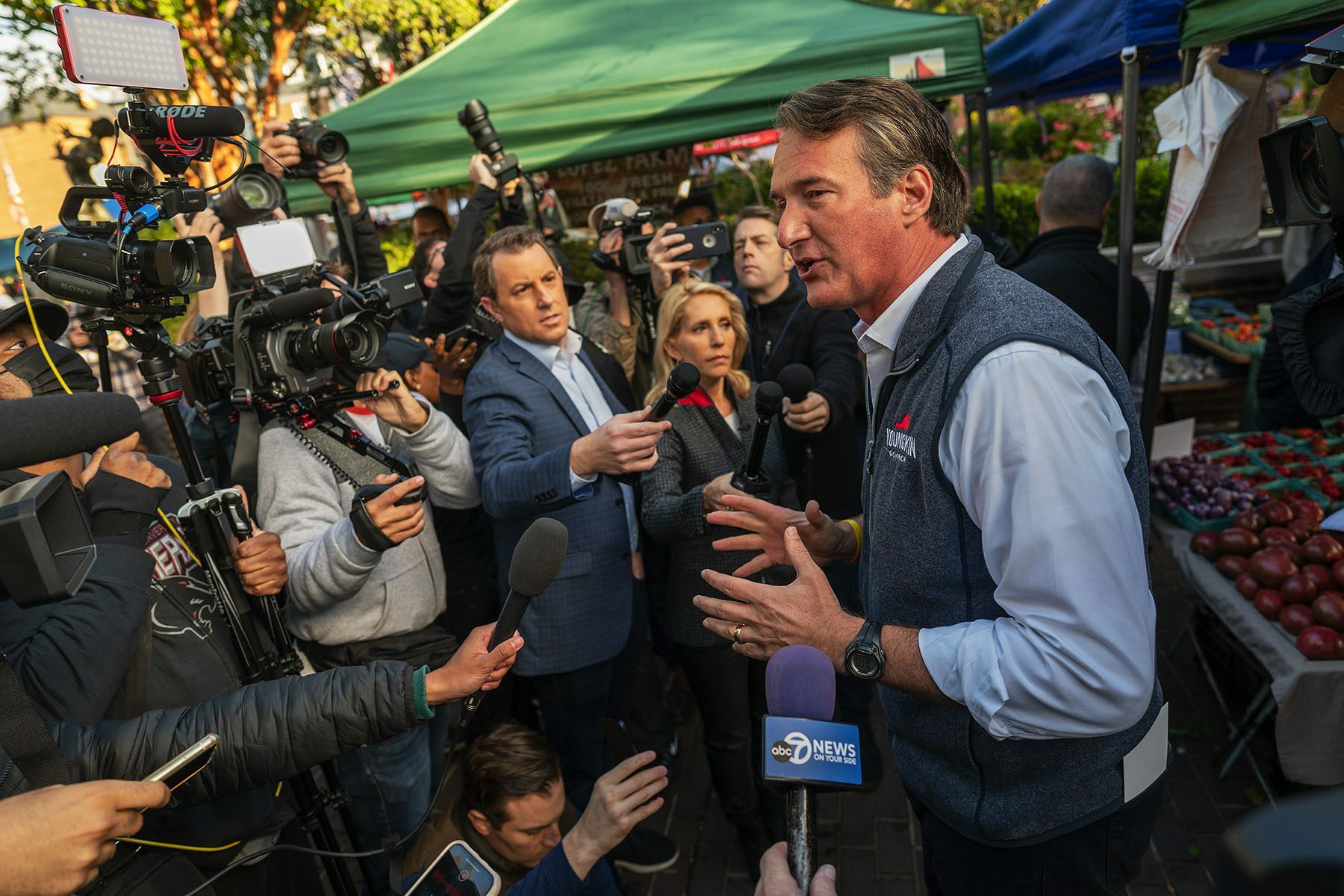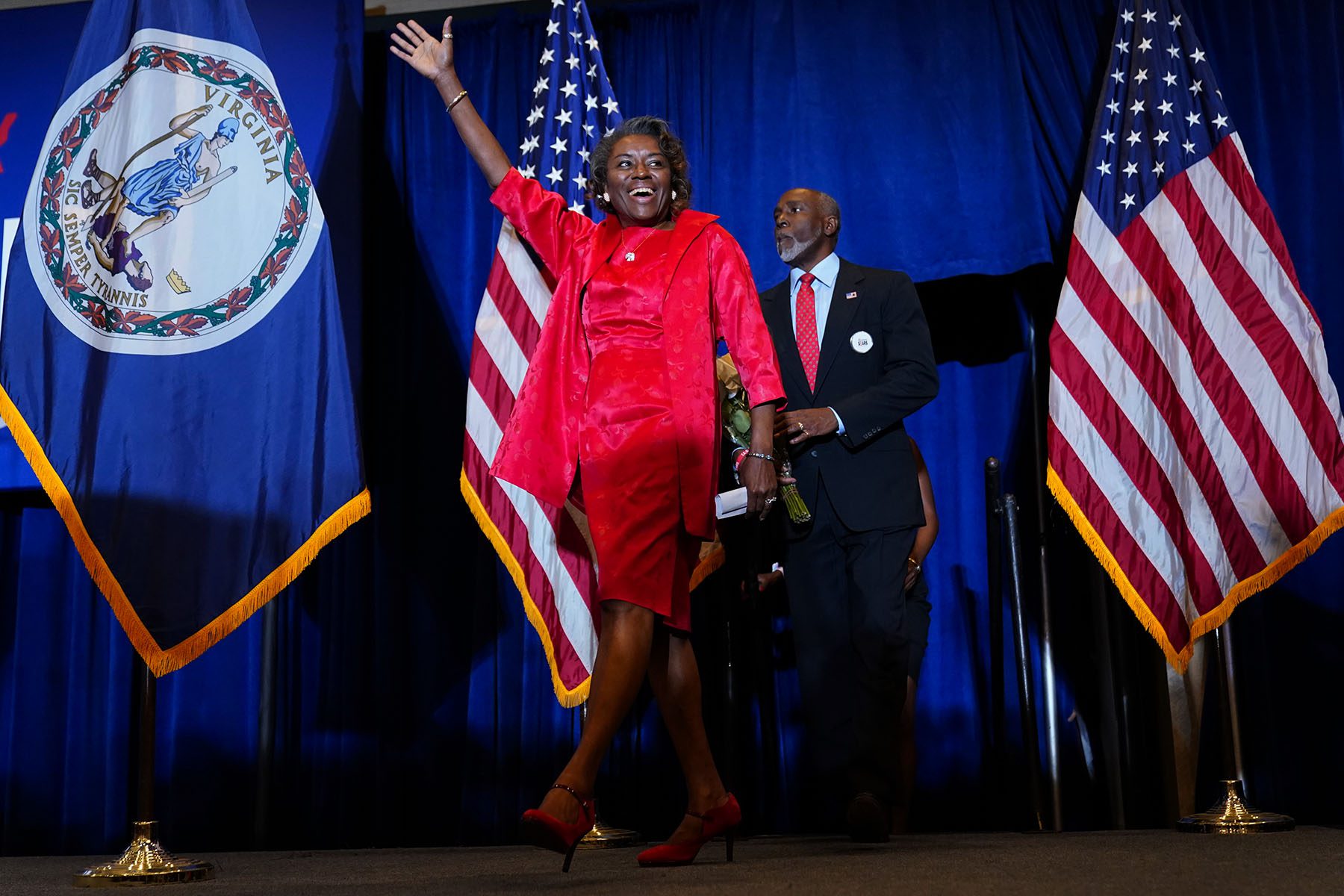Republicans’ sweep of key statewide and legislative offices has broad implications for education, abortion, LGTBQ+ rights and voting.

Republican Glenn Youngkin speaks at a campaign event at the Old Town Alexandria Farmers Market on October 30. (PHOTO BY CRAIG HUDSON/THE WASHINGTON POST/GETTY IMAGES)
During the recent years that Democrats had new political power in the Virginia legislature, they helped expand health insurance for low-income people, lifted restrictions on abortion access, expanded anti-discrimination protections and made it easier to vote. Now, with Republicans’ wins in Tuesday’s elections up and down the ballot, the state’s legislative priorities are set to change, a shift that could have broad implications for women and LGBTQ+ people.
Republican Glenn Youngkin’s defeat of Democrat Terry McAulliffe, along with GOP gains in the state legislature, will give Youngkin, a former private equity executive, a level of legislative power that some Democrats predict could stifle abortion access, LGBTQ+ rights and voting rights. It could also have ramifications on education, a major focus of Youngkin, who campaigned both on expanding the budget and increasing teacher pay but also restricting lessons in public schools on the role of racism in American history.
Republican Winsome Sears made history Tuesday night, becoming the first woman to be elected lieutenant governor and the first woman of color to win any statewide office. Her tie-breaking power in the state Senate — where Democrats have a slim majority and no seats were up for election this year — could prove pivotal for conservative policymaking. During her campaign, Sears expressed opposition to abortion, as did Youngkin, and support for a Texas law that effectively banned the procedure after six weeks of pregnancy.

